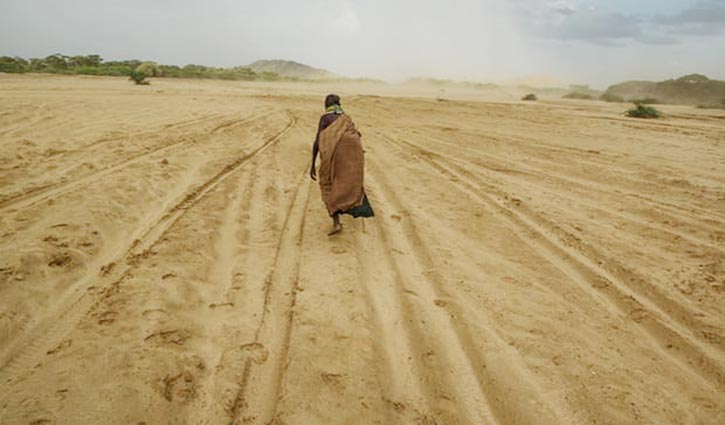'Food ruined by drought could feed more than 80m a day'
5 || risingbd.com

International Desk: The food produce destroyed by droughts would be enough to feed a country with a population the size of Germany’s every day for a year, the World Bank has reported.
In a new study, it said, the “shockingly large and often hidden” consequences of prolonged periods without rain threatened to stunt the growth of children and condemn them to a lifetime of poverty.
The report said the lost food production related to drought would feed more than 80 million people every day for a year, adding that while floods and storm surges had an immediate impact, droughts were “misery in slow motion”.
The World Bank said women that were born in droughts bore the marks for their entire lives, growing up mentally and physically stunted, undernourished and unwell.
New data shows that women born during droughts had less access to education, had more children and were more likely to suffer from domestic violence. Problems caused by droughts were passed on to the next generation, leading to a vicious cycle of poverty.
Droughts reduce crop yields, forcing farmers to expand into nearby forests, the Bank said, adding: “Since forests act as a climate stabiliser and help regulate water supplies, deforestation decreases water supply and exacerbates climate change.” For firms, the economic cost of a drought was four times as big as a flood, it said.
Guangzhe Chen, senior director of the World Bank’s water global practice, said: “These impacts demonstrate why it is increasingly important that we treat water like the valuable, exhaustible, and degradable resource that it is. We need to better understand the impacts of water scarcity, which will become more severe due to growing populations and a changing climate.”
The World Bank said that many of the countries affected by drought overlapped with areas already facing large food deficits and that were classified as fragile, heightening the need to tackle the problem.
Its report recommended constructing new water storage and management infrastructure, coupled with a strategy to control the demand for water. It urged tougher regulation of utility companies operating in cities so that they are given incentives to invest and improve their performance. Safety nets should also be put in place to help families cope when droughts turned into economic shocks.
“If we don’t take deepening water deficits and the bigger and more frequent storms that climate change will bring seriously, we will find water scarcity spreading to new regions of the world, potentially exacerbating issues of violence, suffering, and migration,” said the report’s author Richard Damania. “Current methods for managing water are not up to the challenge. This sea-change will require a portfolio of policies that acknowledge the economic incentives involved in managing water from its source, to the tap, and back to its source.”
Source: The Guardian
risingbd/Dhaka/Oct 24, 2017/Amirul
risingbd.com



















